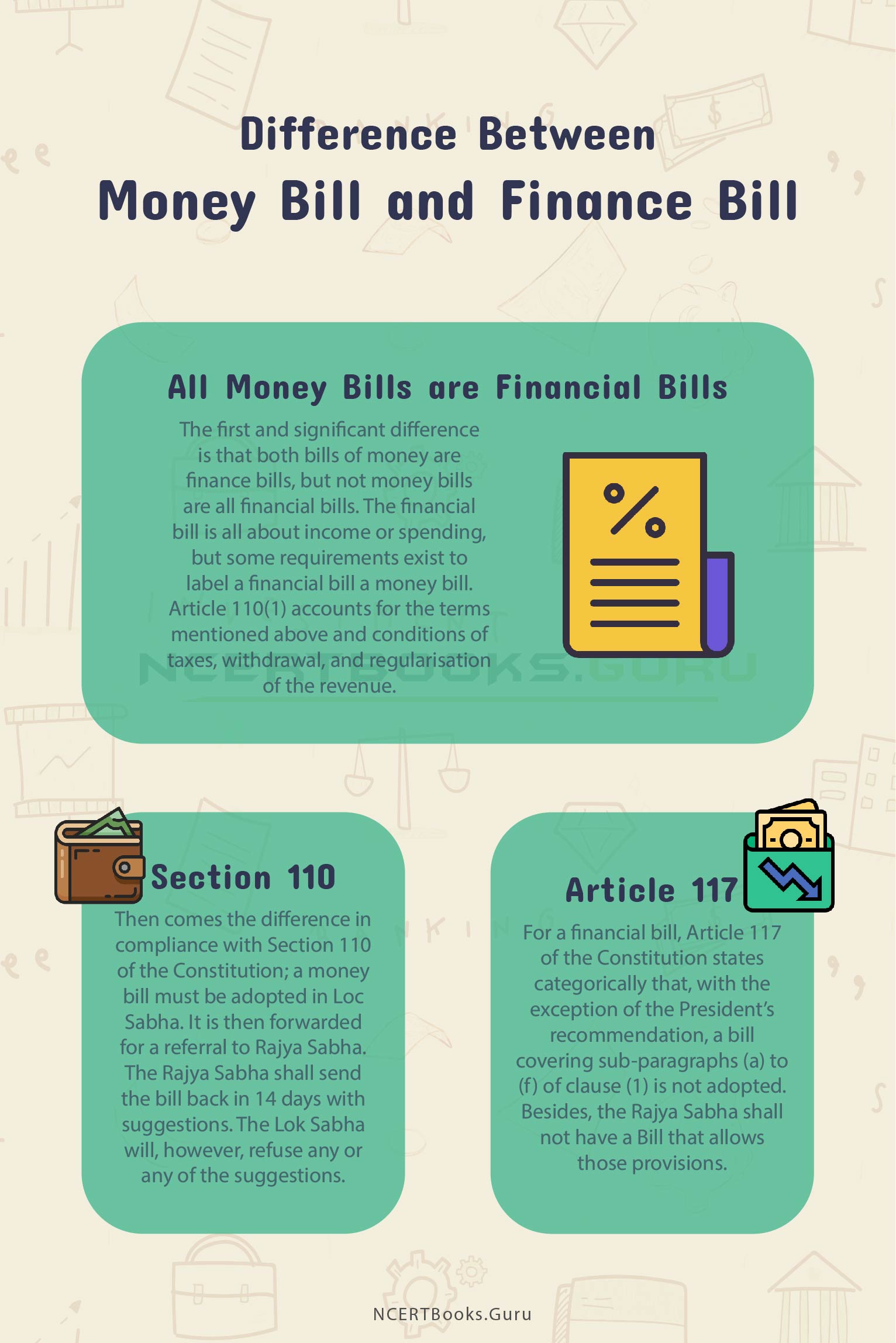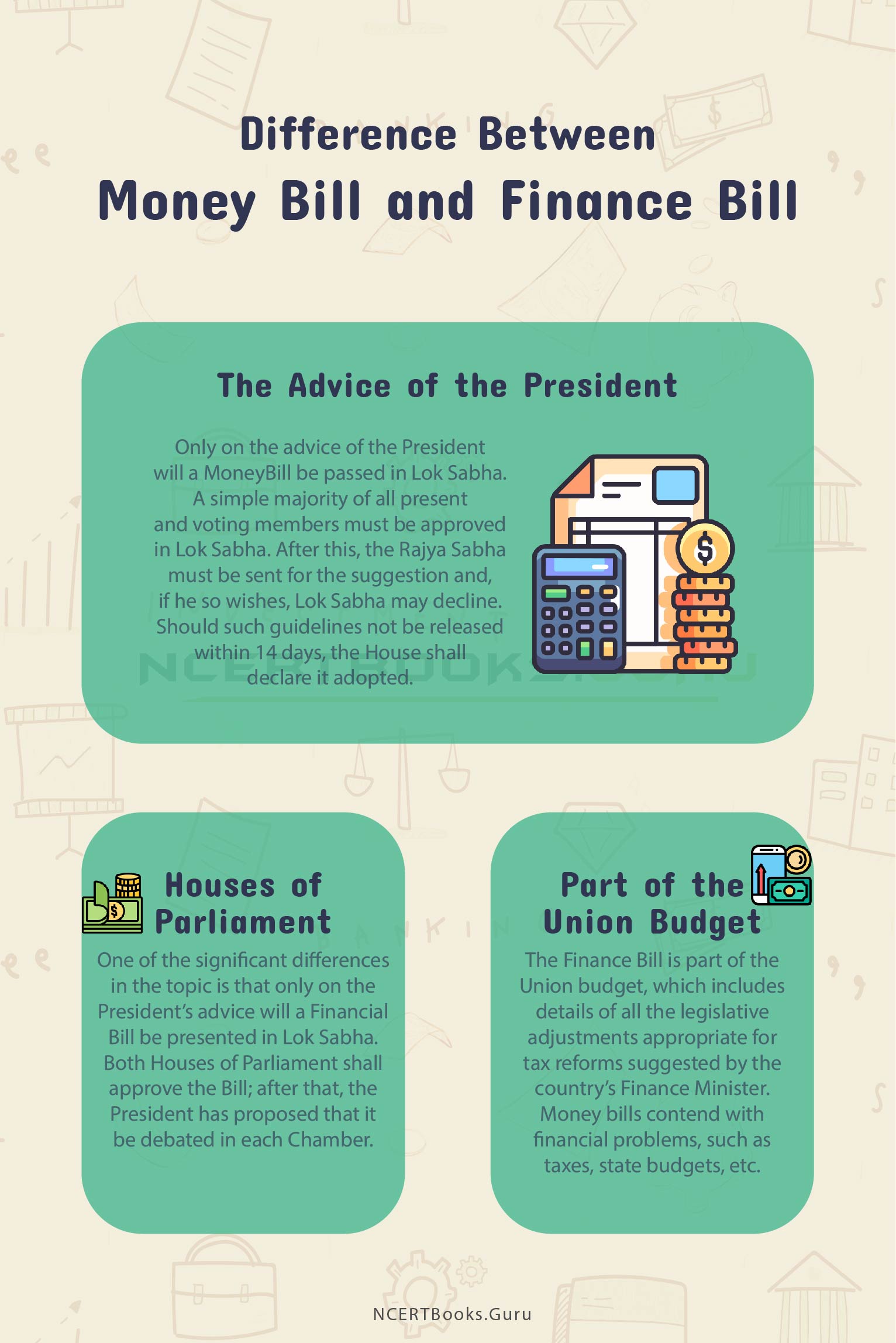A bill comprising some tax, spending provisions, and legislation on some other matter is referred to as a Financial Bill. Therefore, if a bill only covers government spending and deals with no problems, it would be a financial bill. Money Bill refers to the Bill (Bill) passed by the House of Lower Indonesia (Lok Sabha), which generally deals with obtaining and spending money such as fiscal law, borrowing law and government spending, black currency prevention, etc.
You can also find differences between articles on various topics that you need to know. Just tap on the quick link available and get to know the basic differences between them.
What is the major difference between Money Bill and Finance Bill?
All Money Bills are Financial Bills
The first and significant difference is that both bills of money are finance bills, but not money bills are all financial bills. The financial bill is all about income or spending, but some requirements exist to label a financial bill a money bill. Article 110(1) accounts for the terms mentioned above and conditions of taxes, withdrawal, and regularisation of the revenue.
The remaining financial matters not mentioned in Article 110 would be subject to a financial statement. The idea is that the Lok Sabha has primacy in money bills over Rajya Sabha but that they all have equal standing in financial bills.

Section 110
Then comes the difference in compliance with Section 110 of the Constitution; a money bill must be adopted in Loc Sabha. It is then forwarded for a referral to Rajya Sabha. The Rajya Sabha shall send the bill back in 14 days with suggestions. The Lok Sabha will, however, refuse any or any of the suggestions.
Article 117
For a financial bill, Article 117 of the Constitution states categorically that, with the exception of the President’s recommendation, a bill covering sub-paragraphs (a) to (f) of clause (1) is not adopted. Besides, the Rajya Sabha shall not have a Bill that allows those provisions.
The Advice of the President
Only on the advice of the President will a Money Bill be passed in Lok Sabha. A simple majority of all present and voting members must be approved in Lok Sabha. After this, the Rajya Sabha must be sent for the suggestion and, if he so wishes, Lok Sabha may decline. Should such guidelines not be released within 14 days, the House shall declare it adopted.
Houses of Parliament
One of the significant differences in the topic is that only on the President’s advice will a Financial Bill be presented in Lok Sabha. Both Houses of Parliament shall approve the Bill; after that, the President has proposed that it be debated in each Chamber.
The Finance Bill is a Part of the Union Budget
The Finance Bill is part of the Union budget, which includes details of all the legislative adjustments appropriate for tax reforms suggested by the country’s Finance Minister. Money bills contend with financial problems, such as taxes, state budgets, etc. For the Indian political and governing authorities, this bill is significant, as it also includes various important matters, such as Aadhar Bill, Insolvency, and Bankruptcy.

Conclusion
These are the key distinctions between the financial statement. The financial statement is more comfortable to think about the disparity between the finance bill and the money bill, Money Bill info, how an Indian bill is approved, presidential bill consent, and the bill’s lapse.
